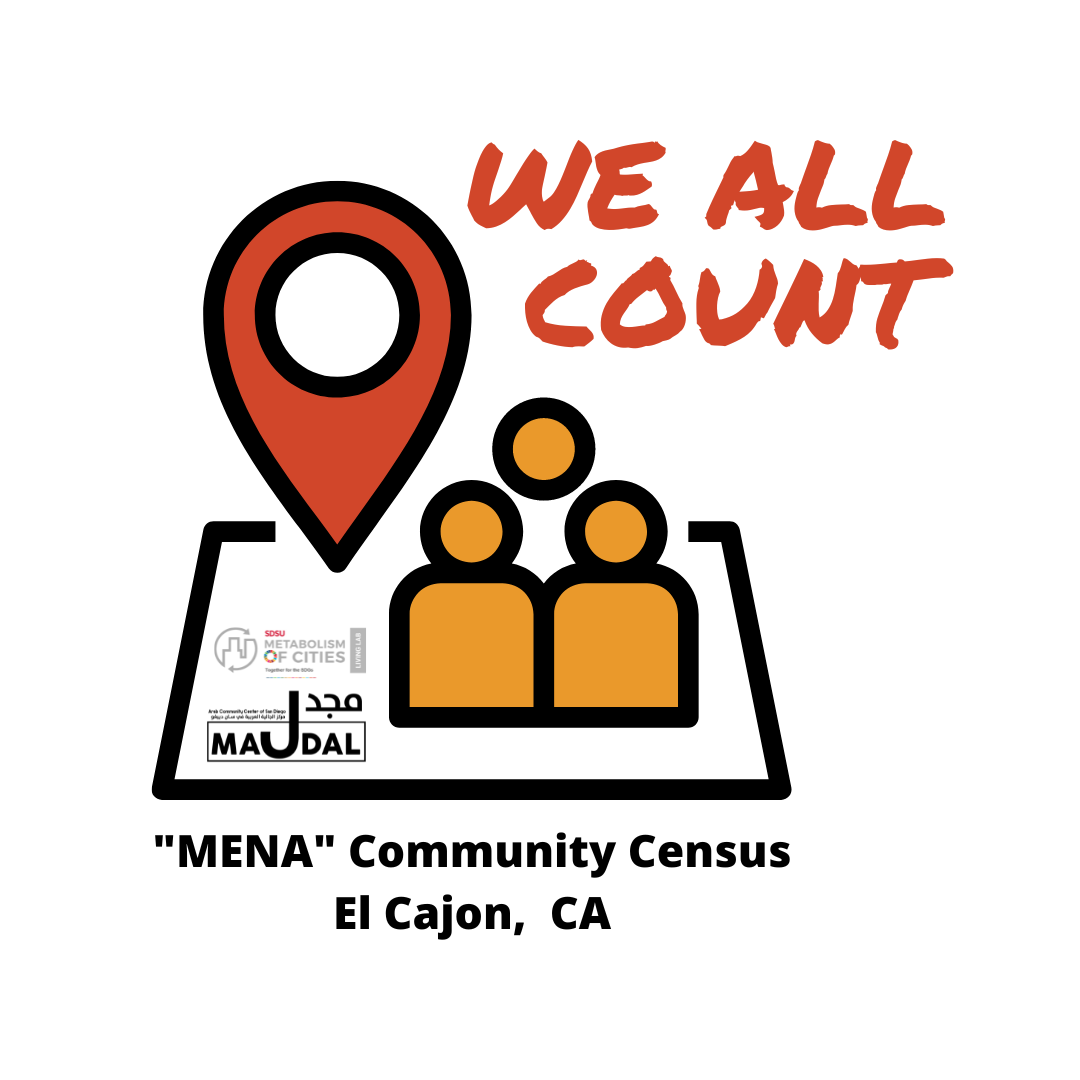Digital Revolution for Sustainable Development

We All Count, City of El Cajon
Todos Contamos, Ciudad de El Cajon
SDGs Addressed | ODS Abordados
The 5P Dimensions of the SDGs | Las 5P Dimensiones de los ODS
Planet
People
Prosperity
The City of El Cajon is home to a large Iraqi refugee population. The city faces high poverty rates and low-income levels compared to other cities in San Diego County. Unfortunately, there is very limited information, services, and resources on refugees in the city, and current methods of data collection fail to acknowledge people of middle eastern descent independently.


The large Iraqi refugee population in El Cajon represents a unique opportunity for the city to embrace the culture, cuisine, arts, and sciences of Iraq to encourage economic development and attract talented ambitious people. The “We All Count, City of El Cajon” project provides a deeper insight into the refugee community focusing on reforming current data collection methods and surveying efforts to monitor the Iraqi population in the city and tailor existing city resources. The first step toward that is through developing a city-wide survey to gather information on the city population. The survey aims to better represent the middle-eastern community in El Cajon, California. According to Minority Rights Group International, “the US Census currently does not collect disaggregated data on Arab and Middle Eastern communities as (with the exception of figures on the Latino populations) it focuses on race rather than ethnicity”. The 2020 U.S census did not have a category for middleeastern and north african individuals. Such an addition would have provided valuable information on the community in the United States. This survey represents a smaller initial step that can be used to influence change in future censuses.
Join the Survey Today
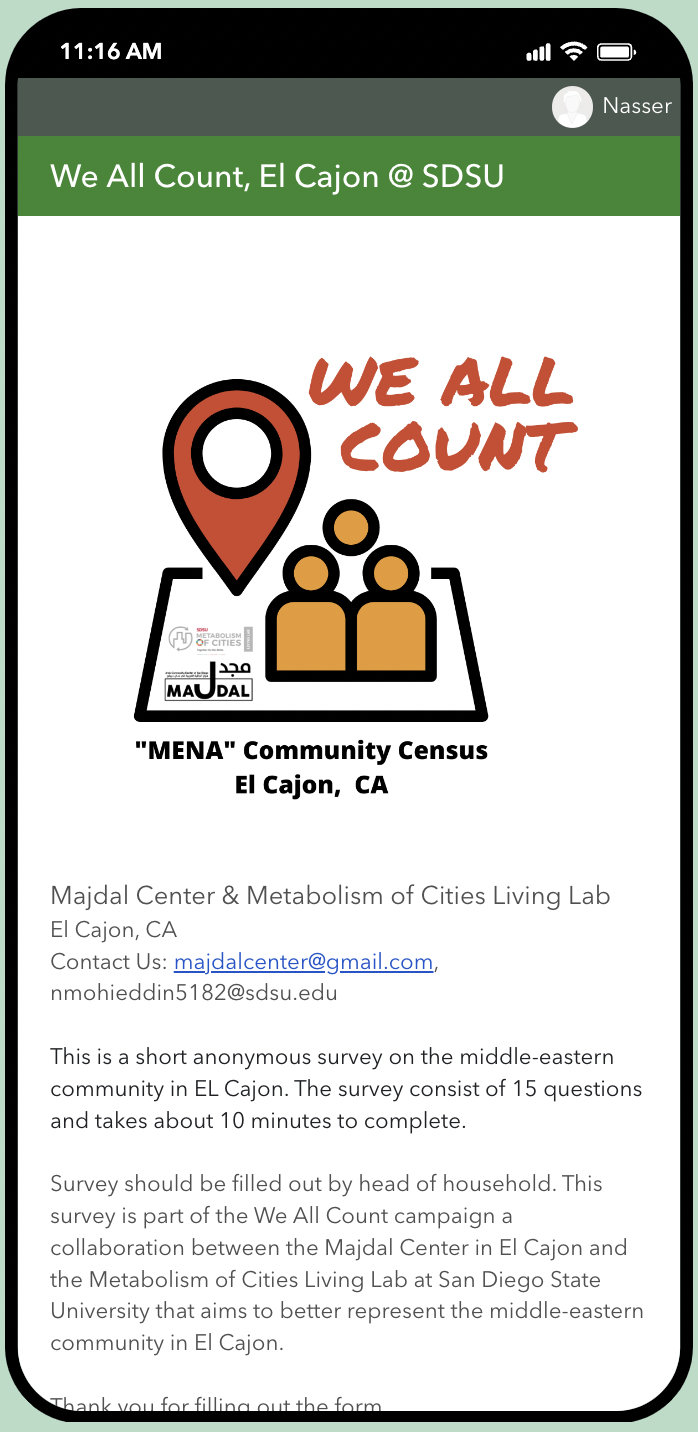
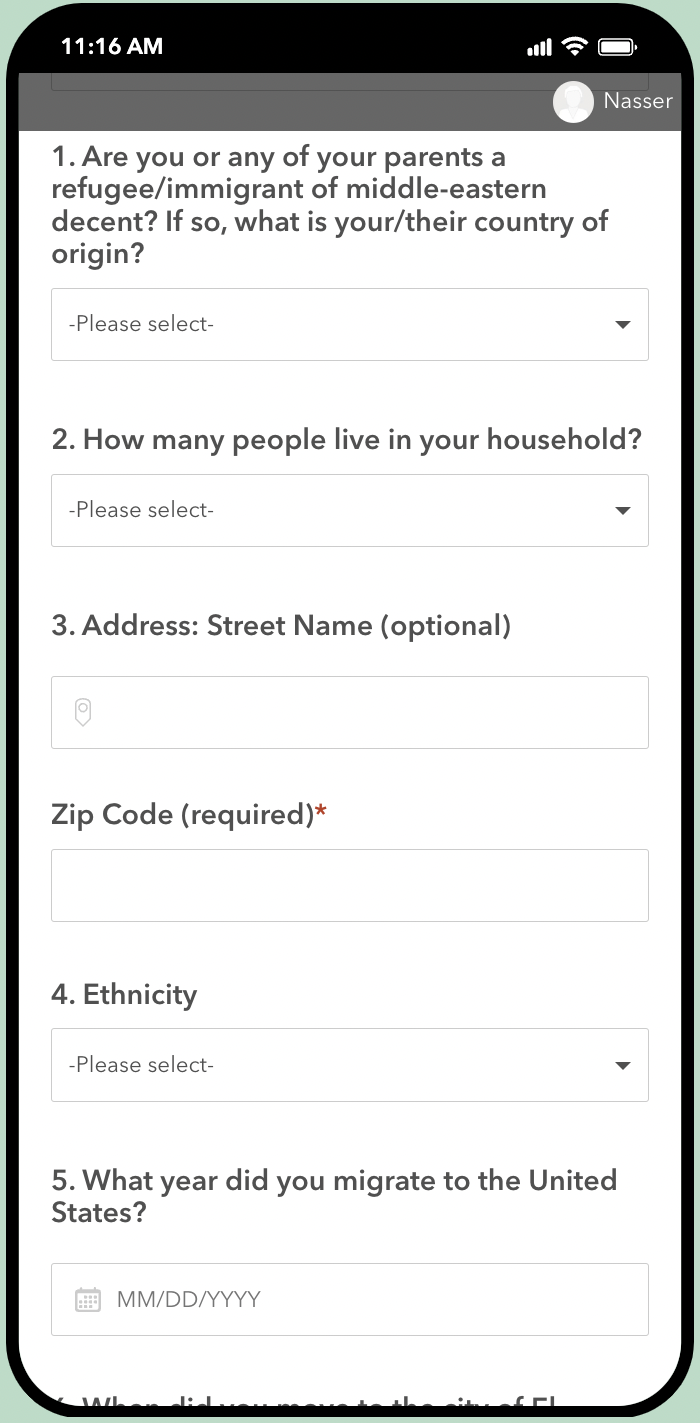
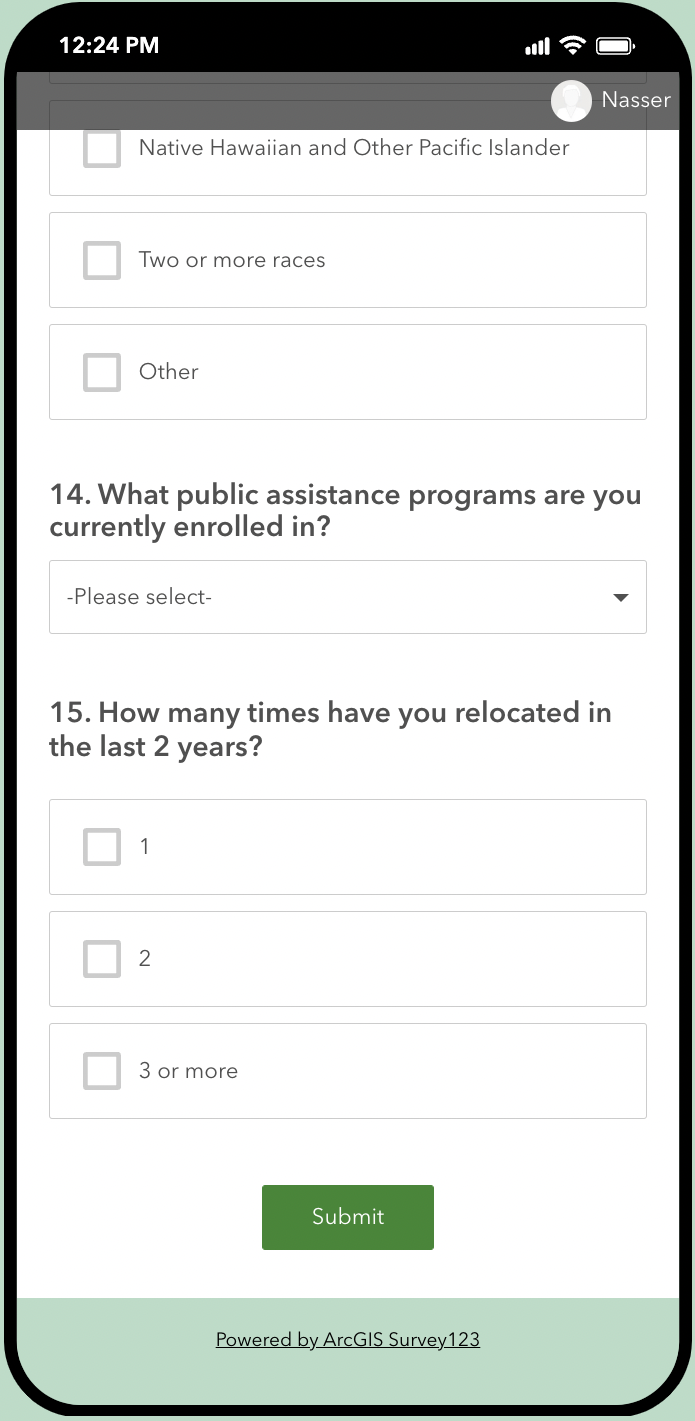
An interactive dashboard is developed to show the current refugee available data, hot spot maps on poverty distribution, income gap between the city/county, numbers of incoming refugees over the years, and statistics highlighting disadvantages refugees face, including income inequality, social injustices, and housing burden. Data from the annual survey will be incorporated into the dashboard to monitor demographic changes while preserving the confidentially of refugee data and related information including questions about ethnic, cultural background and others.
Author | Autor
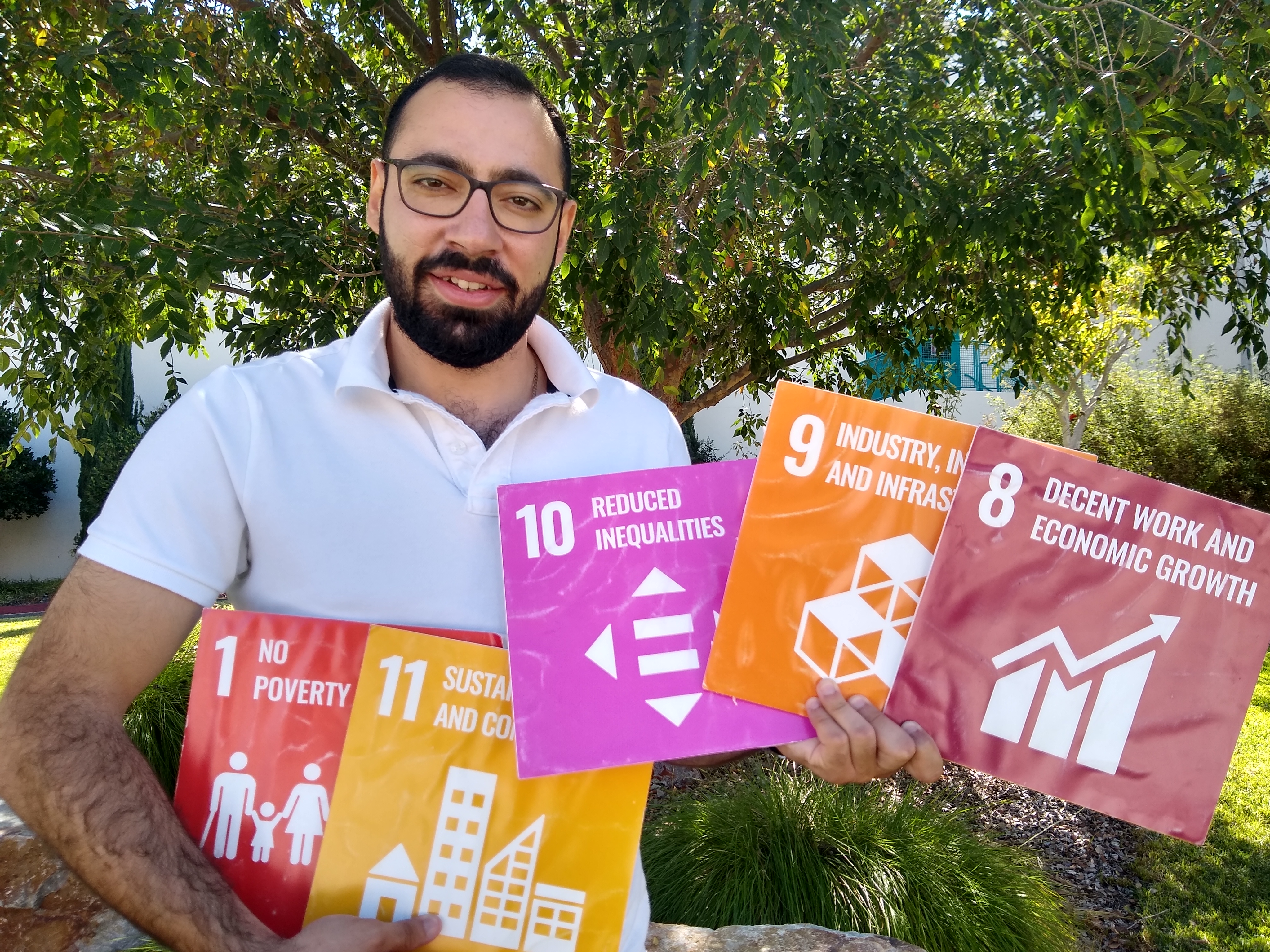
Nasser Mohieddin is a Master of Science in Big Data Analytics Student in the Department of Geography, College of Arts and Letters at San Diego State University in San Diego, California.
Dashboard | tablero
Instructor | Instructora
Dr. Gabriela Fernandez
Graduate Course | Curso de Posgrado
Smart Cities and Sustainability. Data Science Methods for Smart City Applications
Master of Science in Big Data Analytics Program,
Department of Geography, College of Arts and Letters, San Diego State University, San Diego, California, Spring 2022
Schedule Number #20470
